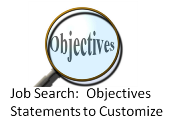Few people realise the profound changes that a focus on professional capabilities and resulting micro-credentials have made both to global education and the recognition of individual expertise. This paper outlines and examines the opportunities and results from a concerted effort to effectively assess, recognise and credential human capability across all workforces and all levels of work, life and cultural contexts.
The primary aim of this paper is to demystify the often jargon-laden, heavily nuanced language surrounding terms such as credentials and capabilities. It introduces the developments and breakthroughs now being driven by DeakinCo., a wholly owned subsidiary of Deakin University. This paper looks over the horizon to predict some of the implications many may have missed— implications that will be examined from the perspective of how governments and society can respond to changes in required skills when the workforce is continually being reshaped by evolving business models, globalisation and disruptions driven by technological change.
Credentials based on professional capability standards are a solution to a problem many are still struggling to understand. Digital disruption and globalisation has changed the landscape of work and learning forever. This disruption is changing what it means to acquire skills and knowledge.
Tired models of doing business and structuring work have resulted in many businesses becoming non-competitive or fighting to hold market share in rapidly shrinking markets. To help existing businesses compete in the future and assist individual students and existing employees to gain work and sustainable career pathways, we need a viable, globally recognised credential system. While many have recognised this need for more than 25 years, the call to take decisive action has recently eventuated as universities and governments have come to acknowledge the commercial reality that disruptions are worst where industries are the slowest to change. Crudely stated, if universities don’t develop or use a credential model and businesses across the globe demand a better way to buy and consume qualifications, commercial interests and market forces will come into play.
Taking the initiative, Deakin University has invested in and built DeakinCo. to enhance not only its own educational offering and ability to innovate, but also to support businesses, regions and the nation in transition, enabling Australia to better compete in the digital age. For Deakin University, the logic of moving towards credentials was compelling—they could effectively augment their existing offering to better meet the future world of work and learning while placing into the marketplace a solution at the beginning of a new digital wave of change.
This paper confirms that with futures pointing toward profound shifts in the structure of education and work, Professional Practice Credentials will be the recognition and transportable symbol of capabilities in action. As DeakinCo. is the first ‘market ready’ authorised credential agency in the world that is backed by a major university, it is able to offer infinitely flexible connections individuals and businesses can build between capability-based credentialing and degree pathways.
An argument will also be advanced to show why non-formal experience and capability developed through professional practice is just as valuable as formal learning and has to be recognised to meet the requirements for future work. Professional Practice Credentials are the breakthrough disruptive model sought by investors, businesses and professional bodies to assure the acquisition of the capabilities the modern workforce needs to transition to, and what the next generation of career aspirants will require to secure work.
What credentials offer is a solution to the much hyped problems surrounding how disruptive changes will profoundly impact the employment landscape and world of work. Professional Practice Credentials offer an effective mechanism to improve educational offerings, employee engagement, build workforce capabilities and increase productivity and competitiveness in this turbulent environment.
What DeakinCo. has created is a new currency for capabilities that employers and employees recognise, value and require to navigate the future world of work in the digital age.
Chosen excerpts by Job Market Monitor. Read the whole story at Demystifying credentials: growing capabilities for the future
Related posts
Credential Chaos – The solution is a common language and a searchable registry
The credentialing marketplace is characterized by a serious lack of transparency, trustworthiness, and comparability. This is not surprising in a sector as complex and decentralized as that of education, training, and skill assessment. But in a knowledge-based economy, the result is misguided investments, regretted hiring decisions, and serious skills gaps, which in turn weaken workforce … Continue reading
Digital Credentialing – Global system to collect, connect, search and compare up-to-date information
In today’s increasingly digitized economies and societies, accessing and understanding data about learning outcomes, skills and credentials is critical to achieving the 2030 Sustainable Agenda, including Sustainable Development Goal (SDG), with its particular focus on quality and inclusive education, recognizing and offering lifelong learning opportunities for all. In this context, different stakeholders have different needs: … Continue reading
Credential Chaos in US – 308,942 credentials are adding to the confusion created by the different types of credentials
In the 1950s and 1960s, skilled workers, whether factory workers, white-collar employees, or managers and salaried professionals, tended to work for the same rm for many years—often their entire careers.1 In the words of economist Paul Osterman, “The typical American worker averaged the same number of years at their employer as did the average Japanese … Continue reading
Colleges in US – The tremendous growth in the number of short credentials awarded
Over the past decade there has been tremendous growth in the number of short credentials awarded by public community colleges. These programs of study are explicitly vocational and require fewer credits for completion than an associate’s degree. However, it is not clear whether students benefit from obtaining these certificates. On the one hand, these credentials … Continue reading
Le développement et la reconnaissance des compétences : de quoi parle-t-on ?
Par Michel Cournoyer Selon le Forum économique mondial, les compétences (“skills”) sont devenues la “monnaie d’échange” (“the core currency”) sur le marché du travail. Les employeurs ne cherchent plus un candidat dans une profession. Ils recherchent des compétences, des talents. Mais ce virage nécessite l’utilisation d’un langage commun permettant notamment de les reconnaître, les certifier, … Continue reading
Skills in Canada – Developing a mapping system that links skills to occupations
The skills required to succeed in today’s world of work are rapidly changing. Workers experience pressure to continuously improve their skills, and employers struggle to nd workers with the right skills to achieve their goals. • Developing a pan-Canadian mapping system that links skills to occupations is an important step towards improving our understanding of … Continue reading
Essential Digital Skills Framework for UK- What adults need to safely benefit from, participate in and contribute to the digital world
The essential digital skills framework defines the digital skills adults need to safely benefit from, participate in and contribute to the digital world. This framework has been designed to support providers, organisations and employers across the UK who offer training for adults to secure their essential digital skills. The frameworks sets out 5 categories of … Continue reading
Skills in US – O*NET Database and websites updated
The 23.2 release of the O*NET database includes the following: 339 technology skills related to 133 occupations were updated from employer job postings and other sources. Currently, 186 “hot technologies” are identified. 150 alternate titles related to 84 occupations were added from employer job postings and other sources. Chosen excerpts by Job Market Monitor. Read … Continue reading
Qu’est-ce qu’une compétence?
Une compétence est un ensemble de savoir-faire techniques, de connaissances requiseset de savoir-être liés à l’exercice d’une tâche ou d’une activité professionnelle. Ainsi, pour chaque métier et profession, on distingue des compétences qui correspondent à des fonctions ou des responsabilités majeures. Chacune des compétences se décline en éléments de compétences plus fins qui décrivent les performances spécifiques, … Continue reading




Discussion
Trackbacks/Pingbacks
Pingback: L’Approche par Compétences – | Job Market Monitor - February 2, 2021
Pingback: Skills and Credential Chaos in US – New reports find nearly one million credentials and $2t in yearly education and training expenditures | Job Market Monitor - March 1, 2021
Pingback: Pathways and Job Transitions in Canada – A model | Job Market Monitor - April 21, 2021
Pingback: Pathways and Job Transitions in Canada – OpportuNext, a new free tool | Job Market Monitor - April 21, 2021
Pingback: Alternative Credentials in Higher Ed in US – Ninety-four percent of respondents’ institutions offer alternative credentials | Job Market Monitor - March 10, 2024